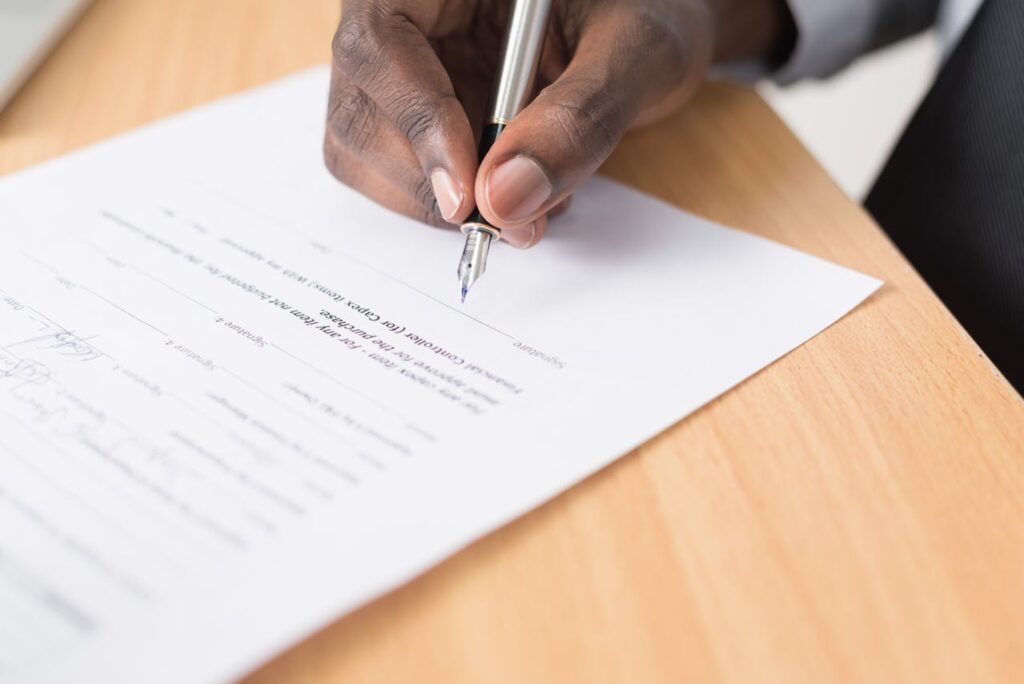What Is a Trustee in a Will?

Some confusing terminology surrounds wills, such as executors, beneficiaries, and trustees. Their roles overlap, so it’s essential to understand who does what if you write a will or appoint trustees.
Creating a trustee in a will is commonplace, mainly if there are young children or vulnerable adults, but acting with caution is essential because they may be responsible for several years. For expert legal advice and help with your or a loved one’s will, contact the Helix Law team.
What Is a Trustee?
A trustee is a person appointed to look after money and other assets put into trust to benefit certain people known as beneficiaries.
If the trust has specific rules, a trustee must follow them. A trustee always has an overriding duty to use the trust money in the beneficiaries’ best interests.
What Is the Primary Purpose of a Trust?
A trust is a device that ringfences off defined assets and controls how they’re used. Its purpose is to protect, promote, or advance the beneficiaries’ interests according to the wishes of the trustor, also called a settlor (the person creating the trust).
A discretionary trust allows the trustees more freedom in decision-making, but they’re still subject to the overriding principle of acting in the beneficiaries’ best interests.
Trusts are mechanisms that can operate while the trustor is alive. However, it’s also a popular device in a will that ensures a specific outcome after the settlor has died.
Parents with young children will be encouraged to include a trust provision in their will so that should they predecease, the money from their assets can support specific things, like paying school fees or university education.
Children under eighteen can inherit from their parents, but the money is usually held in trust, and they’re not allowed to receive it until they reach their eighteenth birthday. Another common reason to create a trust in a will is to put money aside to cover the care costs of an elderly or vulnerable relative.
What is the Role of a Trustee in a Will?
The role of a trustee in a will is to manage and administer the trust funds in line with the settlor’s specific directions and always with the best interests of the beneficiaries first and foremost. Trustees owe beneficiaries a fiduciary duty.
Being a trustee can involve making complex and sometimes difficult decisions. Settlors usually leave directions about financial arrangements, but not always. A trustee must manage the money and the allocation of income – how much and when, or their role may just be to protect the assets and enhance their value.
Similarly, a trustee is often required to pay tax on behalf of the trust, including Income Tax, Capital Gains Tax, and Inheritance Tax. Beneficiaries can challenge trustees if they don’t fulfil their fiduciary duties. The Trustee Act 2000, a mix of common law and statute, governs this area. However, legal action is expensive and can deplete trust funds.
A trustee’s role can last for years, unlike that of an executor, which ceases once the estate is distributed, usually a year or two after death.
What is the Difference Between a Trustee and Executor of a Will?
The role of a trustee is not the same as that of an executor. An executor manages the deceased’s estate and distributes money and assets to the beneficiaries, which may include a trust.
A trustee’s role begins once the executor puts the assets into trust.
Can an Executor Also Be a Trustee?
An executor can also be a trustee, but they’re two distinct roles –like wearing separate hats.
The executor’s role ends when the estate is distributed, and the Inheritance Tax is paid. However, a trustee’s role will continue while there are assets to manage or to a specific date, for example, when the beneficiaries reach their eighteenth birthday.
Can a Trustee of a Will Be a Beneficiary?
A will trustee can be a beneficiary of the deceased’s estate and also benefit from a trust they manage. A solicitor usually recommends that at least one trustee doesn’t benefit from the trust to avoid bias and conflicts between trustees, especially in discretionary trusts.
In high-value trusts, appointing a third-party professional as a trustee, probably a solicitor or accountant, is commonplace. It helps avoid disputes and ensure impartiality: it can also be helpful for tax accounting purposes.
What Happens if a Trustee of a Will Dies?
If a trustee of a will dies whilst the trust is still active, then other trustees can carry on without them or appoint someone to replace them. The trust may stipulate what must happen in this situation.
It’s common to appoint at least two trustees (called co-trustees) to avoid this type of scenario. If one trustee dies, the executor of the will or the administrator of the intestacy (when there is no will) can appoint a new trustee.
Frequently Asked Questions
Does the Trustee Get the Money in a Will?
As a starting point- no. A trustee is responsible for managing the trust fund’s assets. They may also be named beneficiaries under the trust and receive money or other assets, such as property. A will trustee can also benefit from the deceased’s estate outside of the terms of any trust. They may receive an inheritance but not have any entitlement to the assets in the trust.
Need Advice? Contact Helix Law.
The Helix Law team are expert litigation solicitors. We don’t get involved in the drafting of wills or deeds of trust but specialise in acting for and against trustees where disputes arise in the context of an estate.
Perhaps trustees, wielding significant power and responsibility, have acted irresponsibly; we can assist in holding them to account. If you’re a trustee looking for support and advice where allegations have been made that you deny, we can help. We also represent clients who are in dispute with executors in relation to often complex estate disputes.

